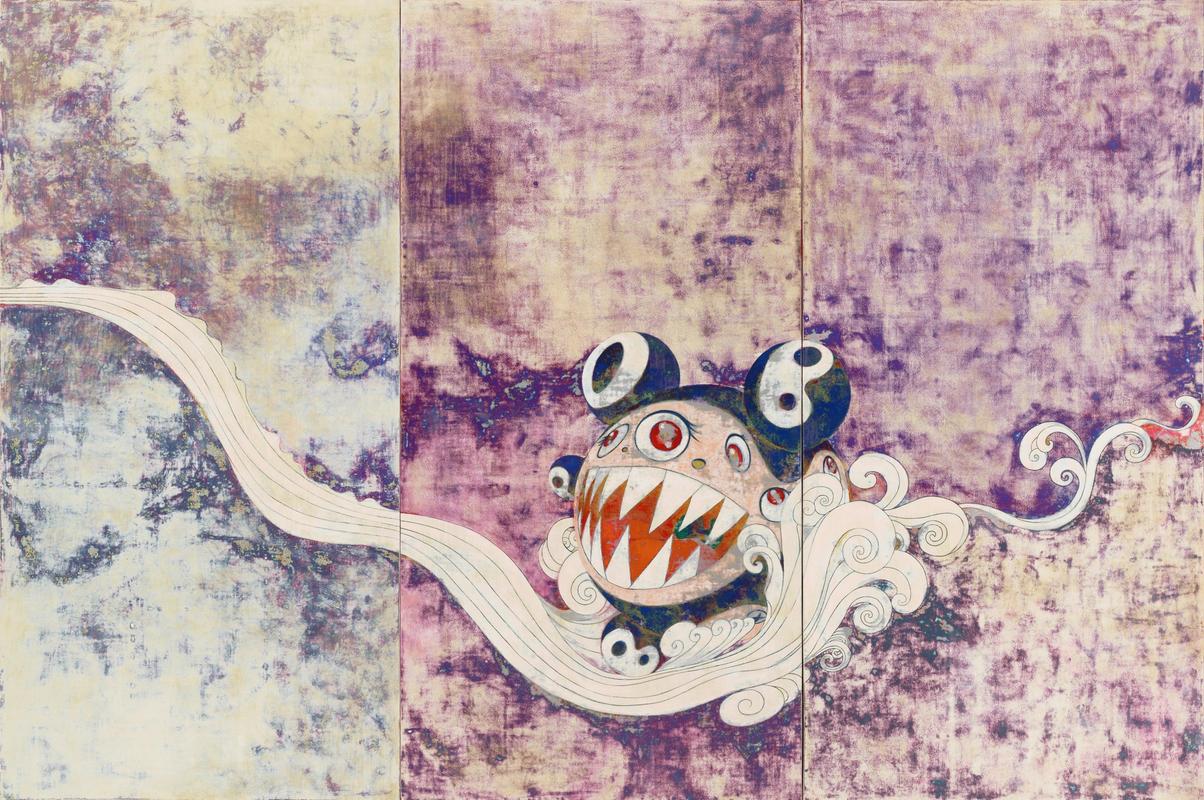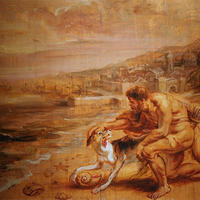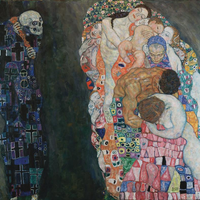More about 727

Contributor
727 is one of Murakami’s most recognizable works, because the character in the painting is seen throughout Murakami’s entire catalogue.
Mr. DOB is kind of like Murakami’s artistic avatar, and 727 is his debut into Murakami’s artistic universe. Mr. DOB’s name is taken from the Japanese word dobozite, which translates to “why?”. DOB has super sharp teeth and an abundance of eyes. Is he asking the world the question why, or are we prompted to ask that when we see him?
Mr. DOB represents an interesting intersection between art and commercialism. He’s without a doubt reached the level of recognition of other commercial icons, like Mickey Mouse or Darth Vader. Mr. DOB has even surpassed Murakami himself in the cultural consciousness; if you don’t follow art extensively you may not know what Murakami looks like, but you'd definitely recognize Mr. DOB.
In this piece, Mr. DOB resides mostly in the middle panel of a 9’ 10” x 14’ 9” triptych, and he rides a wave similar to Japanese artist Hokusai’s The Great Wave off Kanagawa. Like Murakami, you may not know this artist by name, but his famous woodblock print is one of the most recognizable images in the world.
Murakami, influenced by traditional Nihonga (Japanese painting) techniques, created the piece by peeling away about twenty layers of acrylic paint, which is how he was able to achieve the weathered look of the background. The title for 727 was taken from the American Boeing military planes that used to fly over Murakami’s home as a child. Growing up in post-WWII Japan, it’s not hard to see the effect that the dropping of atomic bombs on two Japanese cities left on the country's collective psyche. When it comes to 727, it seems like Murakami, through Mr. DOB, is having a harsh look at American imperialism, and asking why they’ve done what they did, and why they continue.
Mr. DOB is a childlike figure that should be something you want to cuddle up with to help you forget the troubles of the world, but Murakami places him right up against the problem. This could be to say that in a world like this, there’s not enough time to keep the free-spirited nature you had when you were a kid. Life and its troubles come at you pretty fast.
Sources
- The Art Story. Takashi Murakami Artworks. Accessed June 17, 2021. https://www.theartstory.org/artist/murakami-takashi/artworks/
- Estiler, Keith. “'Mr. DOB': Takashi Murakami's Most Famous Character Explained” Hypebeast. April 18, 2019. https://hypebeast.com/2019/4/takashi-murakami-mr-dob-character-history
- Neiderlander, Anna. “Takashi Murakami, the “Warhol of Japan.” Hasta. November 3, 2018. http://www.hasta-standrews.com/features/2018/11/3/takashi-murakami-the-…













